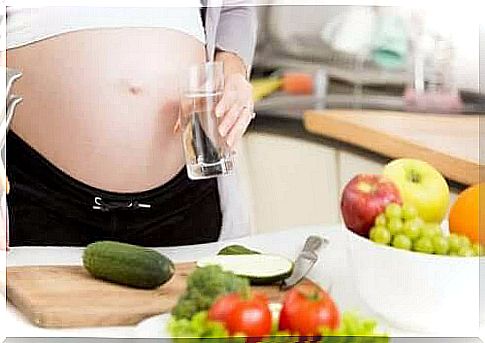Dietary Supplements For Pregnant Women

If you are planning to have children or are worried about nutrition during your pregnancy, today’s article is for you. Here you will find an overview of dietary supplements for pregnant women.
At such an important stage as pregnancy, nutrition plays an important role. From conception, a woman’s body undergoes a number of physiological changes. Each of these changes aims to provide the growing fetus with everything it needs for its healthy development.
During pregnancy, a woman’s need for energy and, to an even greater extent, her need for micronutrients increase.
We really want to emphasize the importance of adapting to the nutritional requirements of a pregnancy. And we mean not only the general needs associated with pregnancy, but also for each individual woman.
Malnutrition can contribute to pregnancy toxicosis, congenital defects, miscarriages and other serious consequences.
Given that a woman’s diet is not always enough to cover all nutritional needs, many use dietary supplements. Of course, this should only be done under the supervision of a doctor or midwife.
Below we go through the most important micronutrients that women need during pregnancy.
Folic acid and vitamin B9
A deficiency of these nutrients during embryonic development can contribute to miscarriage, neural tube defects such as spina bifida and congenital heart disease, among other complications.
If a woman wants to get pregnant, she should start taking supplements a month before any conception. She should also continue to take these supplements until the end of the first trimester.

The recommended dose during a normal pregnancy is 0.4 milligrams per day. This dose may be increased to up to 5 mg per day in patients at increased risk.
Remember that folic acid is not stored in the body. This means that if you want to see the benefits of folic acid, you need to get it every day.
Regardless of whether the expectant mother takes supplements or not, she should eat foods rich in folic acid, for example:
- Green leafy vegetables (spinach and kale)
- Legumes
- Fruit
- Yeast
- Nuts
Do not forget that folic acid can lose its nutritional value during cooking, so it is best to eat fruits and vegetables raw.
Iodine
Iodine is an important micronutrient for the synthesis of thyroid hormones. These hormones are necessary for the proper development of the brain as well as bone, lung and heart development for the fetus.
Iodine deficiency worldwide is the leading cause of preventable brain damage in fetuses and lactating children. It is also the leading cause of delays in psychomotor development in young children.
During pregnancy, the woman’s need for iodine is 20% higher. Therefore, experts recommend that pregnant women should take 200 mg per day, as well as to use iodized salt for daily use.
Iron
Iron is part of the hemoglobin in our blood and is therefore necessary for the transport of oxygen, among other functions.
During pregnancy, hematological changes occur that increase the woman’s need for iron. Iron deficiency can therefore lead to the most common condition in pregnant women: iron deficiency, or anemia.
This iron deficiency is related to premature birth, decreased physical and neurological development in newborns, infectious diseases and increased perinatal mortality.
Therefore, women should take iron supplements during their second and third trimesters. This helps prevent iron deficiency.
That being said, only a doctor can determine if a woman needs iron or not. Taking iron supplements when not needed can also have consequences.
Calcium, another important dietary supplement
Calcium deficiency is associated with premature birth, insufficient bone mineralization and preeclampsia.
Although women have an increased need for calcium during pregnancy, their bodies absorb 40% more during pregnancy. Therefore, calcium supplementation is recommended only for pregnant women with insufficient calcium absorption.

Multivitamins
Experts no longer recommend taking them during pregnancy. There is no evidence to suggest that they provide greater benefits than individual supplements.
In addition, certain nutrients interact with each other, which can interfere with their absorption.
Other supplements for pregnant women
It is important to point out that there are micronutrients, such as vitamins A, D, C, E, and more, that are also needed in larger amounts during pregnancy. But as a general rule, doctors do not recommend taking them in the form of supplements. Women can usually easily meet these nutritional needs through a healthy diet.
Finally, it is also important to mention that an excess of certain vitamins (such as A and D) can have a toxic effect. This applies to both the mother and the child. Therefore, pregnant women should never take supplements without first consulting a doctor or midwife.









